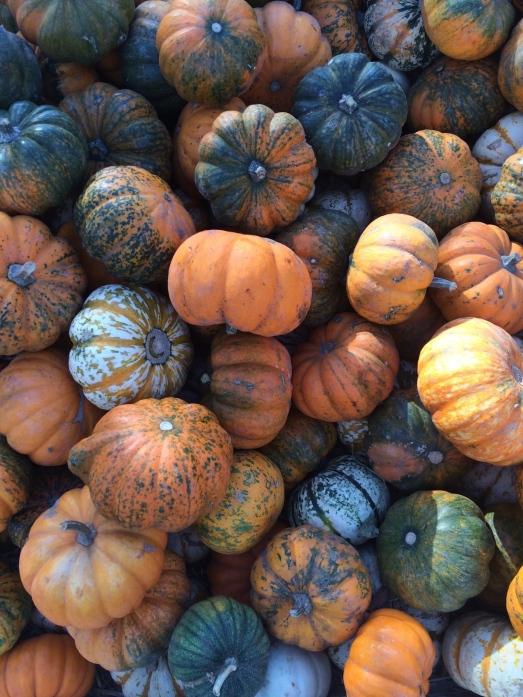
Happy fall! I had been noticing that the dark was coming earlier, too often before I leave work. I had an interesting week, with more than usual ups and downs. If there was a theme, though, it was recipes. This would be completely unremarkable if cooking were the only focus of my professional life, but as you know, I have this slightly crazy dual professional life, with my main “day job” as a primary care doctor. Interestingly, three patients this week shared recipes with me– one shared someone else’s recipe she enjoyed so much that she wanted me to have it, and two others so kindly gave me cookbooks, one by the author himself. These gestures were very satisfying and touching, because they made me feel that my message has been getting across: that eating well and deliciously and preparing their own food is the key to their health. In case these lovely people are reading this, thank you again. I am looking forward to diving into these recipes and will share some of them here.
Then I received a message from Fidel, one of the cooks I met in Senegal, who had taken me on a market tour and taught me, along with the other members of the kitchen, how to make a few Senegalese classic dishes. (Coming soon, I promise!) As much as I had learned from Fidel, he was also interested in learning from me, and to my delight has been reading and learning from this blog. He contacted me to let me know that my focus on healthy cooking had sparked his own interest in improving the health of his country through food. He had taken one of the more popular recipes from my Thrive Kitchen cooking classes, for kuku sabzi (Persian herb “frittata”), enjoying it for taste, health, and as a means of reducing food waste (using wilted herbs that they would otherwise not serve in the restaurant). Even more, they’ve started serving it to the restaurant guests, with a positive response. To hear that my recipes and nutrition messaging are making it all the way to West Africa is almost overwhelmingly satisfying to this teacher!
To close out the week, I had another spontaneous moment of recipe-sharing at the grocery store last night. Among the items in my basket was my first delicata squash of the season. My cashier, unfamiliar with the striped object, asked me what kind of squash I was purchasing. “Delicata,” I said, “Have you ever had it?”
He said “Oh, you eat it?”
So of course, I went into cooking teacher mode (teachers always teach!). “It’s my favorite squash,” I said, “and you can only find it in the fall.”
It was close to closing, so I wasn’t expecting him to be chatty, but his curiosity was piqued. “I’ve only tried spaghetti squash so far.” I asked if he enjoyed it. He had. I told him that delicata was my favorite squash, for so many reasons– flavor, ease of preparation (no need to peel!), lovely appearance. I was so pleased that he asked me how to make it. (There was nobody in line behind me.) I advised him to slice it, remove the seeds, toss the slices in a little olive oil and salt, and to roast the slices in a 400 degree oven for 10-20. He rang up the squash and saw that it was only $0.99 and was happily surprised. “I think I’ll have this for dinner tonight.” Music to this cooking teacher’s ears!
So, to celebrate fall, if you haven’t tried delicata squash before, this is your day! Roast it simply, as above, and think about adding some spices, such as smoked paprika or harissa. Or if you want something more complex, one of my favorite ways to enjoy roasted delicata squash is in my Thanksgiving Kale Salad.
Besides being delicious, winter squashes as a group are rich in beta-carotene, and delicata are a source of dietary fiber and potassium, as well as smaller amounts of vitamins C and B, magnesium, and manganese.

What’s your favorite squash or pumpkin?
If you’re interested in other ways to enjoy the group of seasonal vegetables (technically fruit) known as winter squashes and pumpkins, sign up today for my next Thrive Kitchen: Everything Pumpkin on 10/17. To register, call 415-833-3450 or email SFHealthEd@kp.org ($30 KP members, $40 non-members). If you’re not in the San Francisco area, you can still join our Facebook community at http://www.Facebook.com/TheDoctorsSpicebox. To your health!
